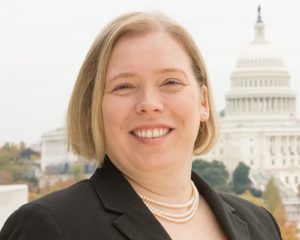 “Never let a good crisis go to waste” is an old political maxim that often pops up whenever partisans, pundits or political operatives use a crisis as cover to push unrelated policy agendas. COVID-19 is providing many such opportunities, including for proponents of school vouchers.
“Never let a good crisis go to waste” is an old political maxim that often pops up whenever partisans, pundits or political operatives use a crisis as cover to push unrelated policy agendas. COVID-19 is providing many such opportunities, including for proponents of school vouchers.
In the midst of this health and economic crisis, the federal government is spending unprecedented amounts of tax dollars trying to stabilize a shaky economy. In less than two months, Congress – which had been hamstrung by partisan gridlock – passed five bills aimed at fighting the coronavirus and minimizing its effects. Some of this legislation provides much needed stimulus to cash-strapped states so they can continue providing services that undergird our society.
“The Department of Education is doing all that it can to ensure that non-public schools can double-dip in CARES relief.”
Unfortunately, some politicians are using this time to push dangerous proposals that put our religious liberty at risk. And no, I’m not talking about applying stay-at-home orders to in-person worship services. The dangerous proposals flying just below the radar are renewed attempts to siphon public dollars away from public schools and use taxpayer money to support religious education.
The CARES Act, passed by Congress at the end of March, sought to alleviate the suffering economy by dispersing an estimated $2 trillion dollars across several sectors, including small businesses and state governments. Private, charter and other non-public schools can typically qualify as small businesses and therefore may apply for the Paycheck Protection Program, Economic Injury Disaster Loans and various payroll tax relief options.
As government entities, our local public schools are not “small businesses” and cannot apply for this relief. Instead, the CARES Act created two relief funds to assist K-12 educational needs caused by the unforeseen forced closure of schools: the Governor’s Emergency Education Relief Fund (GEER) and the Elementary and Secondary School Emergency Relief Fund.
Despite the limited avenues of relief for public schools, the Department of Education is doing all that it can to ensure that non-public schools can double-dip in CARES relief. In guidance that admits that “no funds may go directly to a non-public school,” the Department of Education spends 11 pages advising local public school districts to include private schools in spending the relief funds. Previously, the department specifically told governors to consider the needs of non-public schools when determining how to allocate their GEER grants.
Oklahoma Gov. Kevin Stitt is one who did not waste any time in announcing that one way he was looking to spend part of the state’s $40 million grant will be to shore up the state’s school voucher program – a program that is supposed to be paid for with tax credits and not direct allocations of tax dollars.
Vouchers are a disastrous and unjust policy that Baptist Joint Committee for Religious Liberty continues to oppose. As an organization committed to faith freedom for all, BJC recognizes that vouchers threaten institutional and individual religious freedom rights. Vouchers also drain public schools of necessary funding and have exacerbated “stark equity gaps.” Often, these programs fail to adequately serve students of color, rural students and students with disabilities.
Religious schools are not a replacement for public schools. Unlike public schools, they provide religious education and spiritual formation for the continuation of a religious community. This approach to education is inherently different from public education and should not be funded, nor directed, by the government. Government simply has no competency in judging spiritual formation. What the government cannot hold accountable, it should not fund.
“Now, more than ever, public schools need public dollars as they revamp education for America’s schoolchildren.”
Furthermore, religious organizations that accept vouchers might end up losing significant voluntary contributions. A 2017 study of the country’s oldest voucher program showed that “voucher-accepting churches also saw a significant decrease in donations and, thus, had to reduce spending on items such as staff salaries, mission support, and church maintenance.”
As in so many other areas of life, COVID-19 has turned education upside down. Overnight, public school districts were asked to completely transform how children are educated. Instead of supporting the herculean efforts our public schools are taking to create education opportunities for all students regardless of socio-economic status or internet access, the Department of Education is using its levers of power to continue an assault on public schools.
Our public schools have risen to the coronavirus challenge by turning school buses into wifi hotspots, delivering meals to children and families and using their 3-D printers to make much needed masks for essential workers. Now, more than ever, public schools need public dollars as they revamp education for America’s schoolchildren.
One of the ways that we can ensure religious freedom for all is by ensuring that the distribution of public relief funds protects and respects religious liberty of everyone. This includes making sure that public dollars fund public schools, not private religious education, even in times of crisis.
Related opinion articles:
Michael Woolf | Churches: Take the PPP money and walk
Matt Sapp | The CARES Act may be a financial lifeline for churches; but at what cost to religious liberty?
Read more BNG news and opinion related to the coronavirus pandemic:
#intimeslikethese
